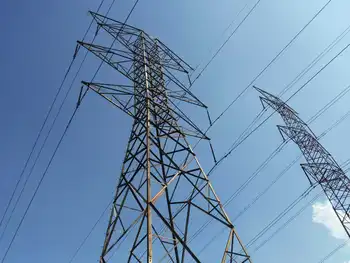Hydro One CEO Salary shapes debate on Ontario electricity costs, executive compensation, sunshine list transparency, and public disclosure rules, as officials argue pay is not driving planned hydro rate cuts for consumers.
Key Points
Hydro One CEO pay disclosed in public filings, central to debates on Ontario electricity rates and transparency.
✅ 2016 compensation: $4.5M (salary + bonuses)
✅ Excluded from Ontario's sunshine list after privatization
✅ Government says pay won't affect planned hydro rate cuts
The $4.5 million in pay received by Hydro One's CEO is not a factor in the government's plan to cut electricity costs for consumers, an Ontario cabinet minister said Thursday amid opposition concerns about the executive's compensation and wider sector pressures such as Manitoba Hydro's rising debt in other provinces.
Treasury Board President Liz Sandals made her comments on the eve of the release of the province's so-called sunshine list.
The annual disclosure of public-sector salaries over $100,000 will be released Friday, but Hydro One salaries such as that of company boss Mayo Schmidt won't be on it.Though the government still owns most of Hydro One — 30 per cent has been sold — the company is required to follow the financial disclosure rules of publicly traded companies, which means disclosing the salaries of its CEO, CFO and next three highest-paid executives, and financial results such as a Q2 profit decline in filings.
New filings show that Schmidt was paid $4.5 million in 2016 — an $850,000 salary plus bonuses — and those top five executives were paid a total of about $11.7 million.
"Clearly that's a very large amount," said Sandals. Sandals wouldn't say whether or not she thought the pay was appropriate at a time when the government is trying to reduce system costs and cut people's hydro bills.
Mayo Schmidt, President & CEO of Hydro One Limited and Hydro One Inc. (Hydro One )
But she suggested the CEO's salary was not a factor in efforts to bring down hydro prices, even as Hydro One shares fell after a leadership shakeup in a later period. "The CEO salary is not part of the equation of will 'we be able to make the cut,"' she said. "Regardless of what those salaries are, we will make a 25-per-cent-off cut." The cut coming this summer is actually an average of 17 per cent -- the 25-per-cent figure factors in an earlier eight-per-cent rebate.
NDP Leader Andrea Horwath, who has proposed to make hydro public again in Ontario, said the executive salaries are relevant to cutting hydro costs.
"All of this is cost of operating the electricity system, it's part of the operating of Hydro One and so of course those increased salaries are going to impact the cost of our electricity," she said.
Schmidt was appointed Aug. 31, 2015, and in the last four months of that year earned $1.3 million, but the former CEO was paid $745,000 in 2014. About 3,800 workers were paid over $100,000 that year, none of whom will be on the sunshine list this year.
Progressive Conservative energy critic Todd Smith has a private member's bill that would put Hydro One salaries back on the list, amid investor concerns about Hydro One that cite too many unknowns.
"The Wynne Liberals don't want the people of Ontario to know that their rates have helped create a new millionaire's club at Hydro One," Smith said. "Hydro One is still under the majority ownership of the public, but Premier Kathleen Wynne has removed these salaries from the public's watchful eye."
The previous sunshine list showed 115,431 people were earning more than $100,000 — an increase of nearly 4,000 people despite the fact 3,774 Hydro One workers were not on the list for the first time.
Tom Mitchell, the former CEO at Ontario Power Generation who resigned last summer, topped the 2015 list at $1.59 million.
Related News












